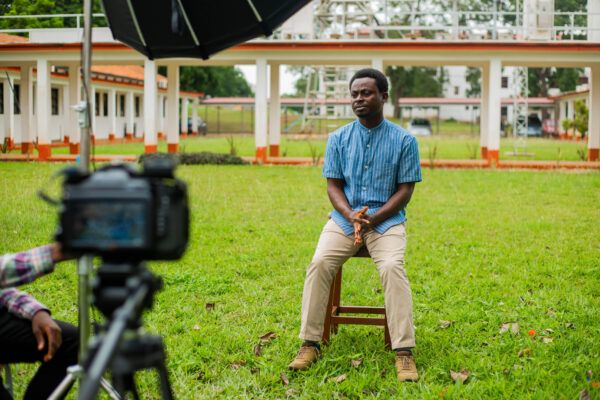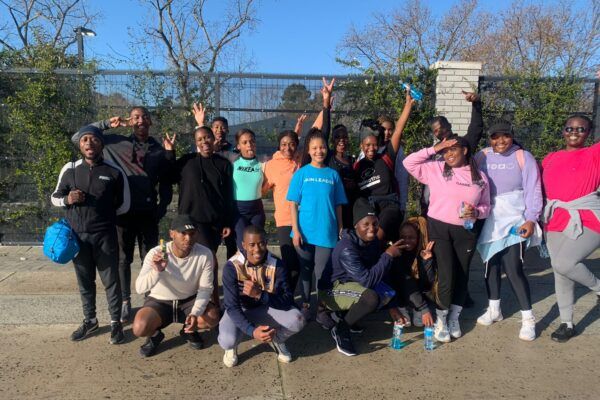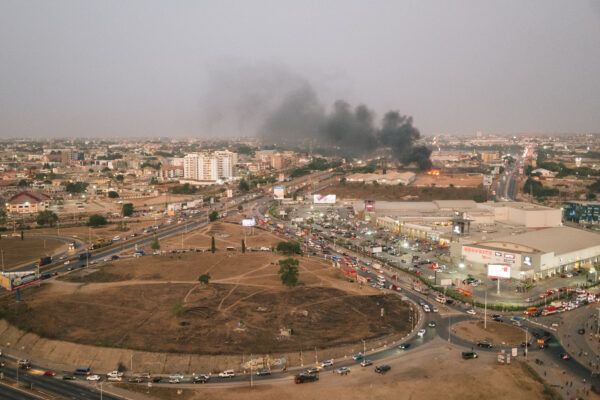The problem
28,000 Ghanaians die prematurely every year as a result of air pollution, according to the World Health Organization (2020). The economic toll is also significant, with air pollution costing the Ghanaian economy 2.5% of its GDP annually.
Despite these alarming statistics, public awareness of the dangers posed by air pollution remains low. Many people are unaware of the health risks they face daily. The issue often wasn’t capturing the attention of policymakers and local authorities, who need to implement measures to deal with the problem.
The solution
New Narratives drives collaborative, people-centred investigative journalism and news. The organisation ran a 10-month programme for journalists who work in print, online, radio or television. Journalists in Ghana were supported to investigate and report on air pollution in a way that would resonate with the public and influence decision-makers.
Journalists received technical training on air quality issues and mentoring for conducting investigations. They were able access experts who provided evidence and insights on air quality issues and the government measures needed to clean the air. They also received funding to conduct in-depth investigations and produce fact-based stories with people at their centre.
One of the journalists was Albert Oppong-Ansah, a reporter with the Ghana News Agency. Through the fellowship, he learned about air pollution’s impacts on health, social equity, climate and the economy. His journalistic investigations resulted in a range of stories, from how children in slum communities are getting sick to the major emissions from old cars. He even travelled to Johannesburg to report on the rapid transit bus system there and what Accra could learn from it.
My role is to disseminate accurate and truthful information about climate change and the environment, and hold leaders accountable. As a journalist, we are not experts. We always have to partner with experts.
Albert Oppong-Ansah
The programme facilitated collaboration between journalists and air quality experts. Albert’s reporting was underpinned by valuable data and expertise from key institutions, like Afri-SET and the Centre for Remote Sensing and Geographic Information Services (CERSGIS) at the University of Ghana.
The impact
The stories by Albert and his fellow journalists are having a wide reach across Ghana’s public. Since New Narratives’ programme launched, journalist fellows have published 128 stories, national radio programmes and podcasts on air pollution. The stories covered diverse subjects, including:
- a TV expose on residents’ fears in an industrial part of Ashanti
- a photo essay on open waste burning in Accra
- a news story on the burden on pollution on taxi drivers in Tema
By partnering with major media outlets such as Joy FM, Peace FM, and the Daily Graphic, Albert’s work reached a wide audience, including communities in some of the most polluted areas of Ghana.
We are creating a sense of awareness in the slum communities with our stories, especially when we do stories and other colleagues in the local dialect stations pick it up and then further disseminate it or translate it into Twi or other local dialects to the communities.
Albert Oppong-Ansah
Albert’s work also caught the attention of local authorities. His reporting has led to stronger relationships between journalists and city officials, who are now more willing to engage with the media on air quality issues. This increased engagement has ensured that air pollution remains a topic of public and political discussion.
We have seen leaders also paying attention to air quality issues now because we are telling them the impact of things on the economy, social lives and public health as well. Experts tell me that our reports are great, it is getting to the public and people are becoming aware of air quality issues.
– Albert Oppong-Ansah
Albert’s story and the New Narratives programme is a powerful example of how empowering local journalists can drive meaningful change for clean air.


